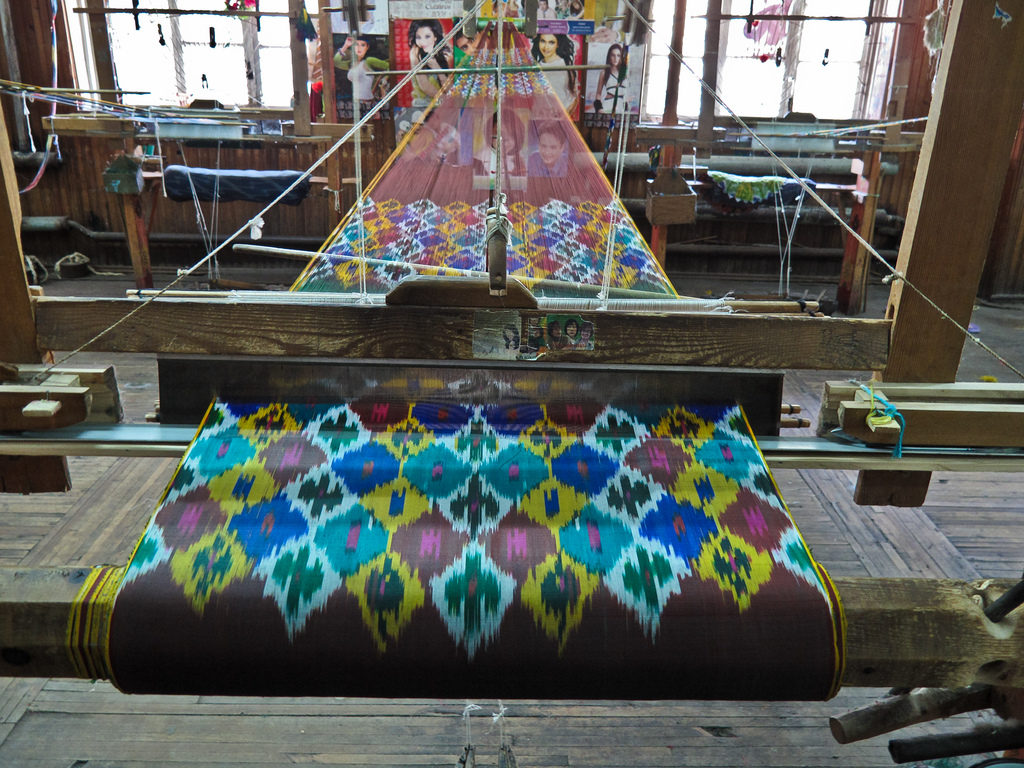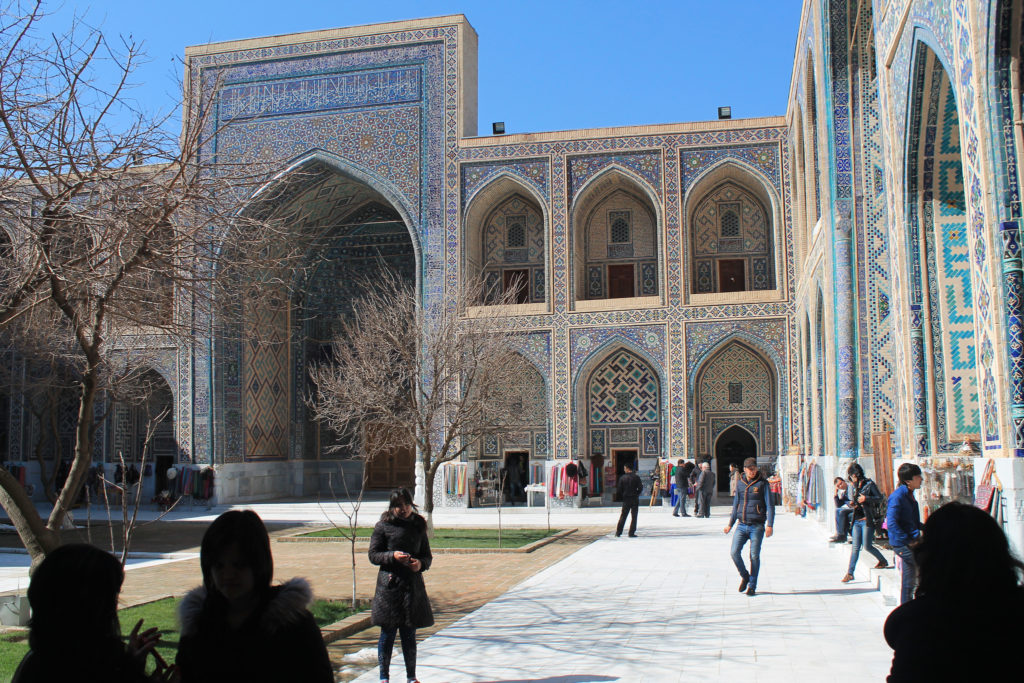Established in 2008, the Permanent Delegation of Uzbekistan to UNESCO has spent the past decade working to promote Uzbek culture, heritage, and civil society within the context of this important international entity. This paves the way for more inter-cultural dialogue and broader cultural awareness among UNESCO’s delegate nations. Read on for a look back at some of the Permanent Delegation’s achievements over the past 10 years.
Celebrating the legacy of silk weaving.
The traditional art of silk weaving has been a major part of Uzbek culture for centuries. To help preserve this important legacy and to inspire future generations of artisans as they explore this historic craft, the Permanent Delegation published “The Renaissance of Uzbek Silk.” This multi-lingual book (available in English, French, Russian, and Uzbek) offers a fascinating look at the history of silk manufacture and production in Uzbekistan.
More recently, the Permanent Delegation organized an exhibition in Tashkent on the creative legacy of silk weaving. Called “The Thread Uniting the Generations,” the exhibit showcased the contemporary work of some of Uzbekistan’s most outstanding master weavers. Thanks in part to efforts like these, traditional methods of Uzbek silk manufacture were added to the UNESCO Register of Good Safeguarding Practices, which helps nations find the best ways to preserve and transmit their living heritage, in 2017.

Promoting Uzbek literature.
Literature is one of the most important ways in which nations can showcase their unique identities and cultures for a global audience. To help promote the work of Uzbek authors and enhance their visibility on the international stage, the Permanent Delegation has launched a number of programs in recent years to support the translation of both classic and modern works of Uzbek literature in order to make them accessible to a broader range of readers. In 2015, for example, several works by Erkin Azam, one of Uzbekistan’s most influential contemporary authors, were translated into English and French through the Permanent Delegation’s support.
Designating a new World Heritage Site.
Historic sites or natural wonders that are designated as UNESCO World Heritage Sites typically benefit from increased international interest and enhanced preservation support. However, it can take time for a property to be included on the World Heritage List, and evaluation criteria are extremely rigorous.
That’s why the 2016 designation of the Western Tien-Shan to the UNESCO World Heritage List, achieved after years of tireless work by the Permanent Delegation, was such an important accomplishment. The Western Tien-Shan is one of the world’s largest mountain ranges, spanning three countries and home to an incredible diversity of landscapes, animals, and plants. The only World Heritage Site in Uzbekistan that is natural rather than cultural, the Western Tien-Shan is also the first new site in Uzbekistan to be added to the World Heritage List since 2001.
Establishing scientific centers.
Over the centuries, Uzbekistan has been home to some of the world’s greatest scientists – from Avicenna, the 11th-century father of early modern medicine, to Ulugh Beg, a 15th-century astronomer who produced an incredibly accurate star chart 200 years before the invention of the telescope. The Permanent Delegation is committed to continuing Uzbekistan’s legacy of scientific achievement.
To that end, the Permanent Delegation has worked to establish more scientific institutions in the country. These include an experimental chemistry center for young scientists under the umbrella of the Uzbek Academy of Science’s Institute of Bioorganic Chemistry as well as a center for scientific information at the Tashkent University of IT in partnership with the Higher Examination Board, the State Test Center, and the Alisher Navoi National Library of Uzbekistan.

Exploring the future of Uzbekistan’s legal system.
A key priority for the Permanent Delegation is to encourage civic engagement among the country’s young people and to inspire the next generation of civil leaders. As part of this mission, the Permanent Delegation launched an annual student Olympiad in 2010 tackling the theme of Uzbekistan’s legal system. Titled “Judicial Reform in the Republic of Uzbekistan: best practices and perspectives,” the event was held in partnership with the scientific research center of Uzbekistan’s Supreme Court.
Promoting Uzbek athletes.
Since Uzbekistan declared independence in 1991, the country’s athletes have worked to establish themselves as world-class competitors outside the context of the Soviet Union. The Permanent Delegation has been a major supporter of these efforts over the last decade.
For example, in 2011, the Permanent Delegation helped arrange for Uzbek gymnasts to compete both at an important Rhythmic Gymnastics Grand Prix Series in Thiais, France, and at the 31st World Championship for Rhythmic Gymnastics in Montpellier, France. This last event in particular was an important step for Uzbekistan towards acquiring a license to participate in the 2012 Olympic Games in London.
Documenting history and heritage.
Today, the digitization of cultural archives and the digital documentation of historic artifacts is vitally important to preserving a nation’s cultural legacy. In 2010, the Permanent Delegation successfully negotiated the establishment of a documentation center for Uzbekistan’s cultural heritage. Initiated in partnership with the country’s Minister for Culture and Sport, the project also included the acquisition of computers and other digital equipment necessary for documenting the historic architectural and archaeological monuments of Uzbekistan.

Sorry, comments are closed for this post.